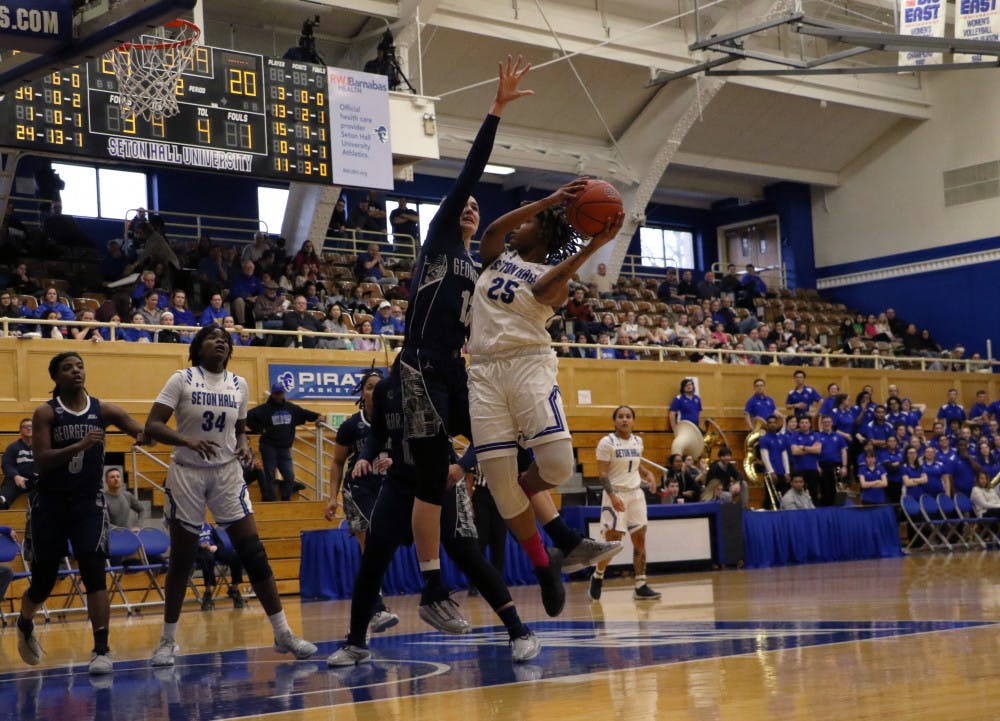Seton Hall University has elected to join the National Sexual Assault Response Team program to help provide services and support to victims of sexual assault.
Seton Hall's team, which advocates on behalf of sexual assault victims, will work closely with the South Orange Police Department and Essex County Sexual Assault Nurse Examiners to ensure that victims of sexual assault receive the care and accommodations guaranteed by New Jersey law.
Plans to formulate a team began last year when the topic was proposed to Associate Vice President for Student Affairs Laura Wankel, Christopher Kuretich, associate dean of students said in an e-mail interview.
Seton Hall's SART program operates under the guidance of a planning committee comprised of Kuretich, Associate Dean of Students Rosario Reyes from Community Development, Megan Nervi from Counseling Services, and Assistant Director of Public Safety & Security Gary Christie. There are also eight advocates, six of whom are undergraduate students.
"The planning committee members were selected and began laying the framework last year for the formation of the group," Kuretich said. "In the spring of 2009 we interviewed and selected our first group of advocates."
The advocates, who are trained to work specifically for the Seton Hall community, participated in a 20 hour training program over the summer with the assistance of Ursula Liebowitz-Negron, director of the Essex County Rape Care Center, and launched their hotline in September.
Kuretich said that the SART team expects to hear from two types of callers: those who were past victims of sexual assault and are seeking the resources to help them recover, and those who were just assaulted.
When they receive the first type of calls, "SART advocates will talk with and work with the caller in helping them to connect with resources on campus such as health services, counseling services, and the Dean of Student's office," Kuretich said.
When advocates receive calls from people who were just victimized, advocates will provide victims with information about undergoing a sexual assault forensics examination, participating in a criminal investigation, participating in university disciplinary proceedings and connecting with other resources on campus, such as health and counseling services, Kuretich said.
According to the 2009 Campus Safety Report issued by the Department of Community Development and the Department of Public Safety and Security there were 11 forcible sexual assaults in 2008, six more than the previous year.
The university is required by the federal Jeanne Clery Disclosure of Campus Security Policy and Campus Crime Statistics Act to keep and disclose information about crime on campus and properties adjacent to campus for three years. The report is available online at the Department of Public Safety and Security's Web page of the university Web site and includes recommendations, policies, and procedures to be followed in the event of sex offenses.
Despite the fact that some sexual assaults are reported, Kuretich said that sexual assaults are among the most underreported crimes, especially among college students.
He said that students tend not to report sexual assaults for various reasons, including the nature of a close campus environment, the fear they will be found out and stigmatized, fear of retaliation, and fear of action being taken by the university against the victim because alcohol or drug use may have occurred.
"We hope that the existence of the program will increase the ability and comfortability of victims choosing to report and therefore receiving vital information about the resources that are here to assist them," Kuretich said.
Many of the students interviewed are not sure what the team of advocates do and do not know much about the program beyond that it helps victims of sexual assaults.
"I've seen the ads for it but I never paid much mind to them," sophomore Amanda Frankel said. "I feel like they put them around campus with no reinforcement and just expect people to know about it."
Frankel also said that the university needs to raise awareness about sexual assaults and do more to make the community aware about what happens on campus and in the South Orange community.
"If they really want something like (the ads) to catch people's attention, it needs to be made known (sexual assault) happens, raise awareness," Frankel said. "(The university needs to) make it known what goes on, maybe post reports of sexual assault on campus or in the area. It needs to hit close to home for people because, most of the time, people have no idea what goes on outside of their own lives."
Brenden Higashi can be reached at brenden.higashi@student.shu.edu.





